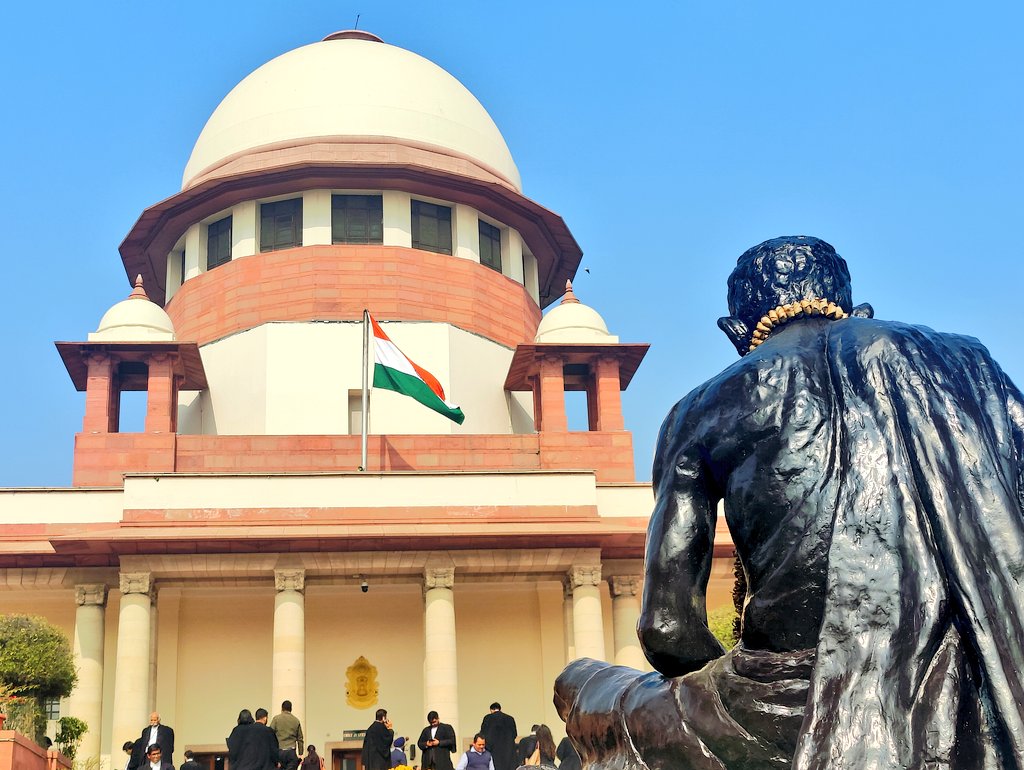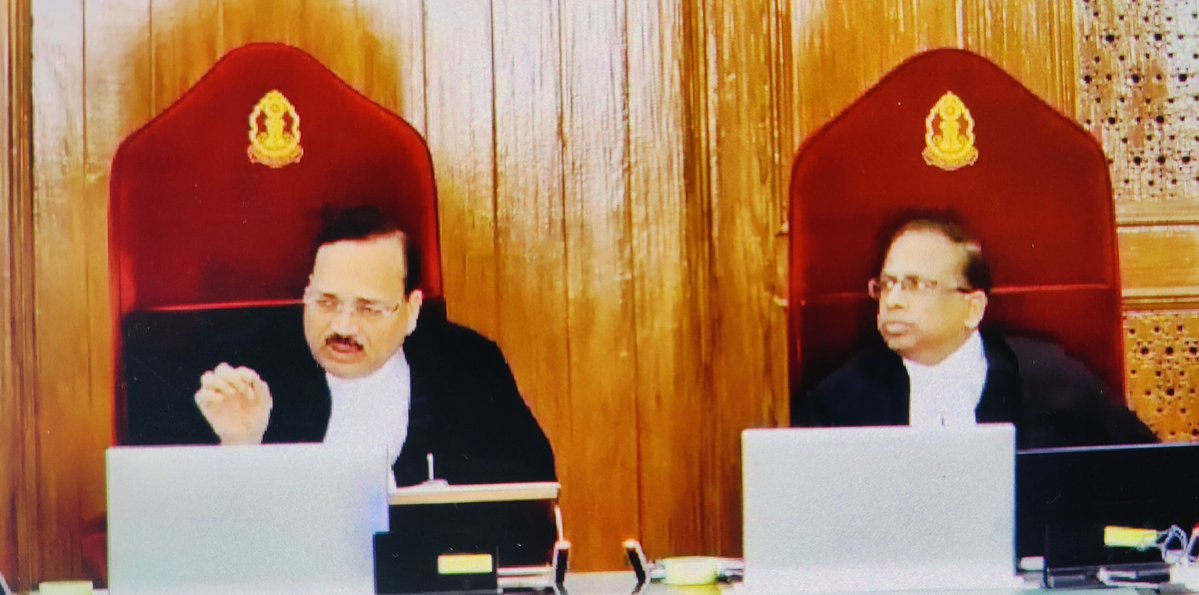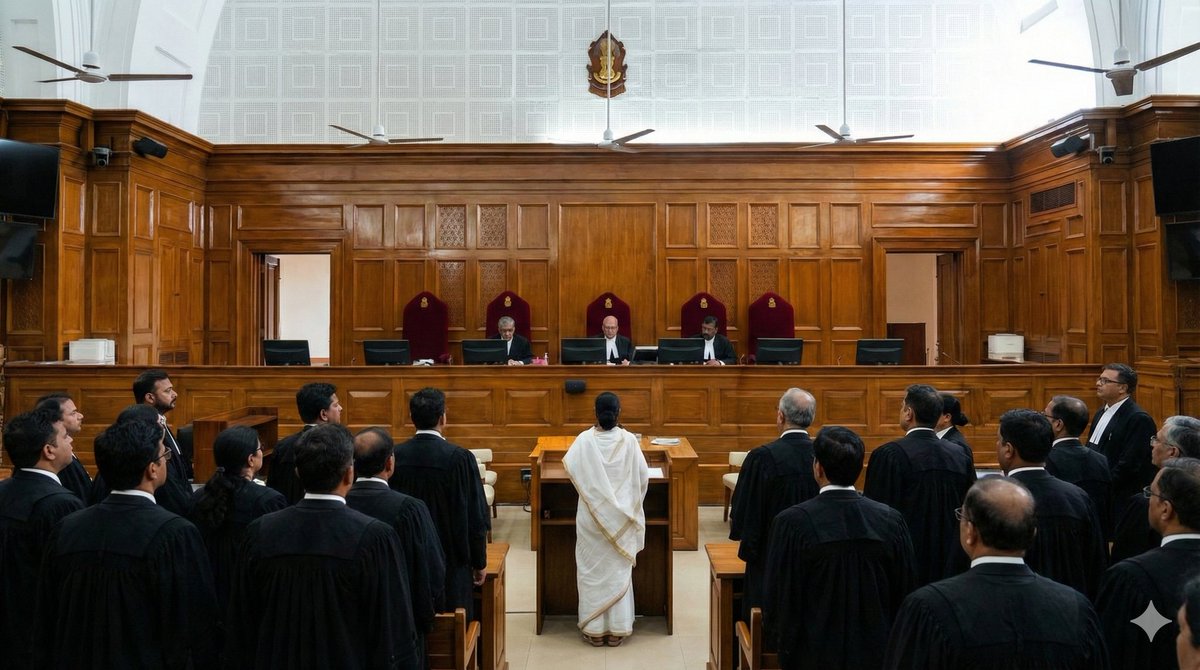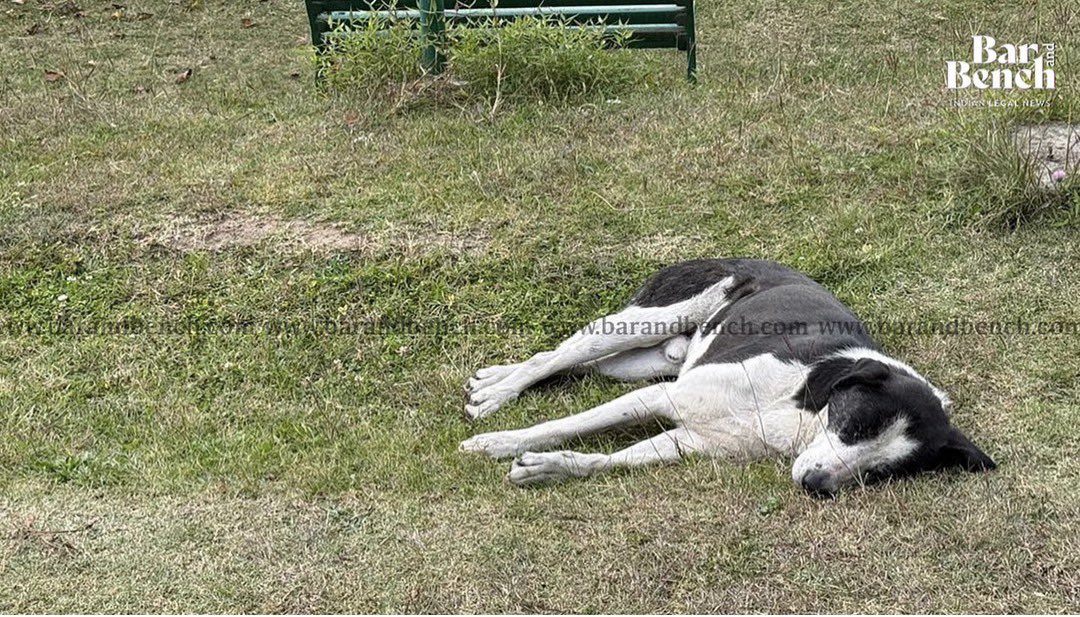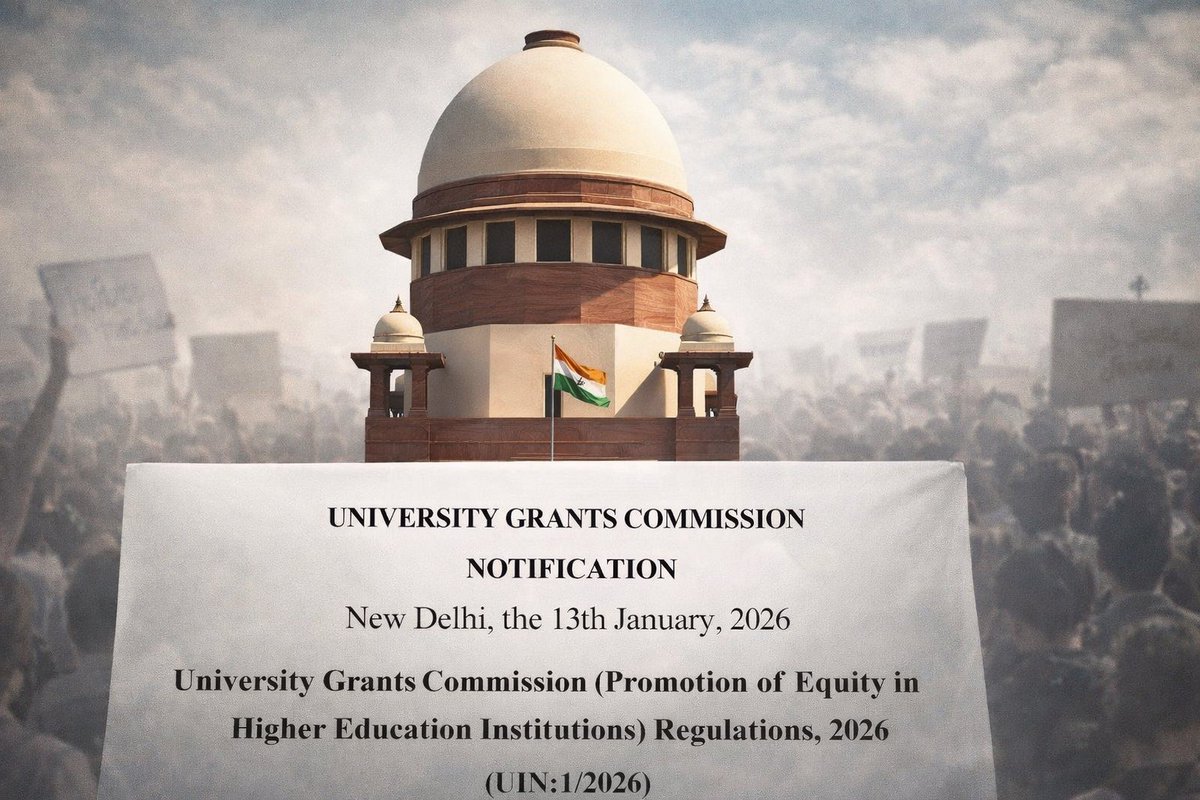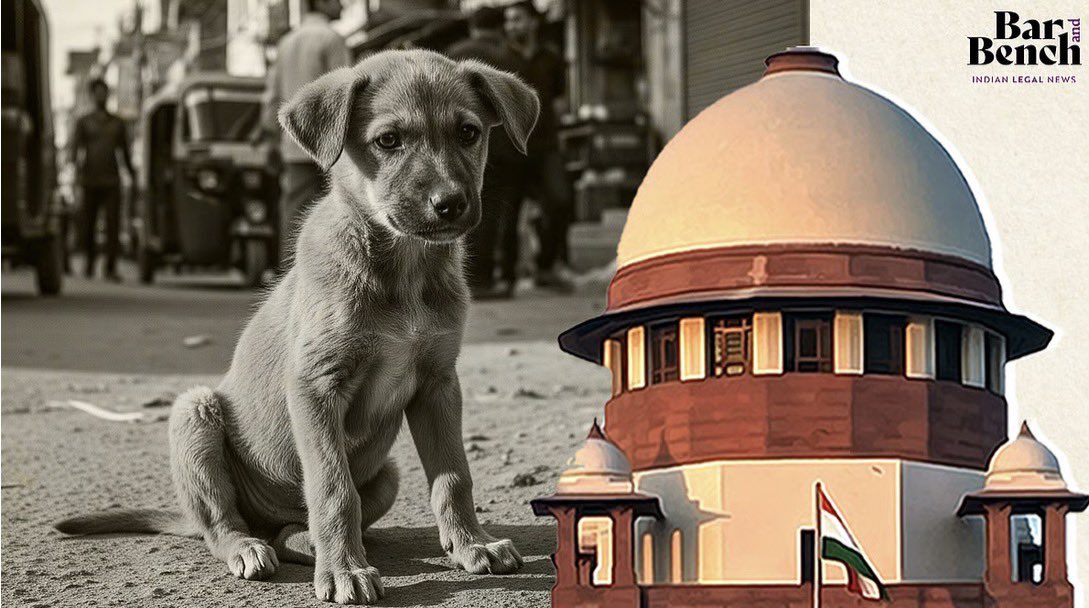Dr Justice S Muralidhar, Punjab & Haryana HC and Senior Advocate Meenakshi Arora to speak on “Forging your own path.”
The discussion is being hosted by the Delhi High Court Women Lawyers Forum.
The talk will start at 5 pm.
The discussion is being hosted by the Delhi High Court Women Lawyers Forum.
The talk will start at 5 pm.

Session begins
Advocates Mrinalini Sen and Saumya Tandon will be moderating the discussion.
Advocates Mrinalini Sen and Saumya Tandon will be moderating the discussion.
Dr Mercy Debra and Daisy Hannah perform an instrumental version of the hymn "abide with me", which Tandon recalls was Mahatma Gandhi's favourite hymn.
Moderators, Sen and Tandon now introduce the speakers for the day, Dr Justice Muralidhar and Senior Advocate Meenakshi Arora.
Justice S Muralidhar begins speaking.
He spokes of the skills needed by a lawyer, which includes the ability to read well, widely and deeply, the ability to question what one reads, to sharpen one's analytical skills using good common sense...
He spokes of the skills needed by a lawyer, which includes the ability to read well, widely and deeply, the ability to question what one reads, to sharpen one's analytical skills using good common sense...

... to ensure that legalese does not drown out the story that needs to be narrated in court, negotiate to be able to see an issue from all points of view and view pros and cons, to present a case well, which requires a command over language: Justice Muralidhar
Justice Muralidhar: You also need to know when not to speak. The art of cross-examination is knowing when to stop asking questions when to let go and when to go slow
The bar continues to male-dominated, Justice Muralidhar notes as he goes on to note that there were 15 women in Constitutional Assembly.
In particular, he remembers Dakshayini Velayudhan, the only woman who belonged to SC caste in the Constituent Assembly.
In particular, he remembers Dakshayini Velayudhan, the only woman who belonged to SC caste in the Constituent Assembly.
Justice Muralidhar recounts that Dakshayini Velayudhan was born in Ernakulam in 1912, graduated in 1935, trained to be a teacher from Madras University and all this through scholarships.
Justice Muralidhar recounts further that Dakshayini Velayudhan taught for 10 years in Govt schools, was an astute Gandhian who married in the presence of Gandhi and Kasturba, with a leper acting as the priest.
Dakshayini in 1945 was nominated to cochin legislative assembly. In the Constituent Assembly, she spoke forcefully on issues concerning caste discrimination.
She is stated to have said that we can't expect a Constitution without a clause addressing untouchability: Muralidhar J
She is stated to have said that we can't expect a Constitution without a clause addressing untouchability: Muralidhar J
Justice Muralidhar on Dakshayini Velayudhan:
Not much is known, but she should be remembered and one should draw inspiration from her.
Not much is known, but she should be remembered and one should draw inspiration from her.
Justice Muralidhar then speaks on the first woman High Court Judge in India, Justice Anna Chandy, a Syrian Christian from Kerala.
The Ruler of Travancore, against popular opinion, had opened a govt law college to girls. Anna Chandy was from one of the first batches.
The Ruler of Travancore, against popular opinion, had opened a govt law college to girls. Anna Chandy was from one of the first batches.
Justice Muralidhar recalls that while responding to a legislator's opposition to reservation for women, Chandy said:
"From the elaborate petition, it is clear that the plaintiff’s immediate demand is to ban all efforts by women to gain employment, on the grounds...
"From the elaborate petition, it is clear that the plaintiff’s immediate demand is to ban all efforts by women to gain employment, on the grounds...
...that they are a bunch of creatures created for the domestic pleasures of men and that their lives outside the hallowed kitchen-temples will harm familial happiness.”
Chandy also opposed laws to exempt women from death penalty or all men conjugal rights without woman's consent
Chandy also opposed laws to exempt women from death penalty or all men conjugal rights without woman's consent
Anna Chandy, who was appointed to the High Court in 1959, was far ahead of his time, Justice Muralidhar remarks.
Justice Muralidhar remembers that Chandy had expressed that if she had faltered in her role as the first woman judge, it would be a great disservice to women.
A similar observation was also made by Ruth Bader Ginsberg, he adds.
A similar observation was also made by Ruth Bader Ginsberg, he adds.
Justice Muralidhar recalls that #RBG spoke of hurdles she faced as a woman, which women face even today.
I don't know how many of you have seen the documentary. She said that in her career she faced three kinds of hurdles i.e.: She was a woman, a Jew and married with a child
I don't know how many of you have seen the documentary. She said that in her career she faced three kinds of hurdles i.e.: She was a woman, a Jew and married with a child
Justice Muralidhar recounts: What is remarkable she associated with the American Civil Liberties Union and started preparing briefs including those with concerns about gender inequality - not only on behalf of women, but also men
Justice Muralidhar observes that this was because #RBG understood that there cannot be discrimination for anyone and that discrimination hurts everyone, men and women
He recounts that RBG fought for widowers denied social security benefits, for instance
He recounts that RBG fought for widowers denied social security benefits, for instance
Justice Muralidhar adds a note on the powerful dissents that were authored by #RBG.
He adds that it goes to show that the dissents that you write on the Supreme Court are equally valuable and equally important as the majority judgment.
He adds that it goes to show that the dissents that you write on the Supreme Court are equally valuable and equally important as the majority judgment.
Justice Muralidhar: Dissents can become majority opinions, inspire legislation
He emphasises on #RBG's opinion that enduring change, one at a time, is important.
He emphasises on #RBG's opinion that enduring change, one at a time, is important.
Justice Muralidhar recounts that as a lawyer, Gandhi was very successful.
In particular, he recounts that the first case Gandhi was involved in ended in a settlement.
"The true function of a lawyer was to unite parties riven asunder", Gandhi said.
He is just 24 years old.
In particular, he recounts that the first case Gandhi was involved in ended in a settlement.
"The true function of a lawyer was to unite parties riven asunder", Gandhi said.
He is just 24 years old.
Justice Muralidhar on Dr BR Ambedkar: He had a deep understanding. Before you criticise, you have to study. He was influenced by Bertrand Russel, John Dewey. His essays on caste are real eye-openers
Justice Muralidhar: Until he had studied the Manusmriti and the scriptures - he (Ambedkar) could not have had such an understanding of how caste works in India.
Justice Muralidhar adds that but for Dr Ambedkar the provisions against caste may not have been incorporated in the Constitution.
He also notes that Dr Ambedkar had prophesied that the Constitutional provisions would not be enough to counter caste discrimination.
He also notes that Dr Ambedkar had prophesied that the Constitutional provisions would not be enough to counter caste discrimination.
Justice Muralidhar: The prophecy is true, we are far from stating we have overcome untouchability. It is still a huge blot, it shames us, everyone, now and then.
Justice Muralidhar emphasises that deep pervasive reading, education is important to reform law.
You need to do it from within, you cannot give up, you cannot say it has broken down, you must believe in the value of the Constitution and its values.
You need to do it from within, you cannot give up, you cannot say it has broken down, you must believe in the value of the Constitution and its values.
Justice Muralidhar: Whatever be your politics, personal believes, as a lawyer you cannot have a position contrary to what is contrary to what the Constitution says.
Referring to what Dr Ambekdar said on Constitutional morality, Justice Muralidhar says: Whatever be the cause you are acting for, the client, there is a certain basic, minimum stance - that is there have to be Constitutional values.
Justice Muralidhar on the five persons he spoke of today: They forged their own paths without any legacy. They are the first.
It also reminds that this is a work in progress and can be done. The adversarial situations were far more hostile then
It also reminds that this is a work in progress and can be done. The adversarial situations were far more hostile then
On a concluding note, Justice Muralidhar also urges the Delhi HC women lawyer's forum to also constantly introspect and address any internal discrimination. Women as a whole is not a homogenous group, he points out.
Transgender lawyers - where do they stand? Justice Muralidhar asks, while highlighting that it is important to constantly engage with issues that crop up
Justice Muralidhar: First conquer inner demons - internal biases - this message goes out even to judges - we must be conscious of hidden biases, inner demons we should conquer
Senior Advocate Meenakshi Arora recounts on Justice Muralidhar's days as a lawyer.
He used to come out of the chamber, learn a lot, but his heart was all for rights, for the poor, for the downtrodden
He used to come out of the chamber, learn a lot, but his heart was all for rights, for the poor, for the downtrodden
Arora recounts that Justice Muralidhar, as a lawyer, had a "little Maruti van" where he would carry out his work from.
He would draft his matters, read up, run down to Court and argue his matter: Arora
Also read:
barandbench.com/columns/the-ma…
He would draft his matters, read up, run down to Court and argue his matter: Arora
Also read:
barandbench.com/columns/the-ma…
Arora on Justice Muralidhar: Some people are born to be judges because their hearts are in the right place
Arora recounts that just as was the case with Justice Ruth Bader Ginsberg: Women do not push themselves enough. Many of us do not make that mark because we do not push ourselves.
Arora recalls how #RBG responded when asked whether there were enough women on the SC Bench after her appointment.
RBG responded by querying why should it not be that all 9 SC judges are women since men have occupied all the positions all these years.
RBG responded by querying why should it not be that all 9 SC judges are women since men have occupied all the positions all these years.
Arora adds that this is a notion she agrees with: Women have been traditionally underrepresented in diverse places.
She adds that after affirmative action, today Africa has the highest women representation levels in their legislative. bodies.
She adds that after affirmative action, today Africa has the highest women representation levels in their legislative. bodies.
Arora: Compare it to countries considered far more advanced, where the representation ranges from 20 to 30 per cent. This shows that it is not necessary because of education or advancement that women move forward.
Arora: It is the circumstances that have made women step out comfort zones and take central roles. We form 50% population, may not form 50% of Bar - but there is nothing to stop more representation.
Arora adds it is not as if women have to be appointed only because of gender: You have many talented women, they need that little push, which RBG needed when she was pushed to SC. She had her husband to push since the appointment required lobbying, here sensitisation is required.
Arora, as she concludes her talk: You are the tough ones. When the going gets tough, the tough get going. So get on!
Don't be modest, Senior Advocate Arora says as advise to young lawyers: There is no room for it. You are as good as the next person. You have the confidence, you can do it.
Arora: Unfortunately, women don't like to take leadership positions. Many have to be pushed. It is time that you become mentors. Move out of comfort zone.
Arora adds that women should not be given more representation merely as a favour, but must be appreciated on merit.
When it comes to work, I don't want to be seen as a woman or a man, I am a lawyer first.
Please don't do it because you are doing it as a "favour" to the gender.
When it comes to work, I don't want to be seen as a woman or a man, I am a lawyer first.
Please don't do it because you are doing it as a "favour" to the gender.
Justice Muralidhar opines that while it may be nice to think there is no homophobia, it may not be the situation.
Justice Muralidhar adds: There is a lot of discrimination against transgender persons. This is a work in progress, we have to talk about it, engage in it, bring cases - all of them need not succeed - but there must be a push
Justice Muralidhar recalls how the Court initially said that the legislature has to change the law regarding the decriminalisation of consensual homosexual relations.
However, he notes: To wait for the legislature to do it may take a longer time.
However, he notes: To wait for the legislature to do it may take a longer time.
Justice Muralidhar notes that there is a need to push for legal reform in various fora, as RBG said "incrementally", one step at a time
Justice Muralidhar on NOTA: It is an experiment worth pursuing. It is important for political parties to know that there is a section of the electorate that thinks differently or does not think there are any candidates worth representing them.
Justice Muralidhar also observes that as of yet, there is nothing to indicate that NOTA has been misused to sabotage a candidate or critically upset election results.
On the process of senior advocate designations, Justice Muralidhar opines that there should be a consultative process with a representative section of the Bar on what the parameters should be for senior designations
Form small study circles, share what you read, to broaden one's understanding: Justice Muralidhar says, on being questioned how to optimise one's reading.
Read diverse perspectives. If you do not read the other perspective, it will come back and haunt you in court. There must be a balance: Senior Advocate Arora says
Responding to a question Justice Muralidhar observes that lawyers must be trained and sensitised on how to deal with difficult judges.
He recounts an anecdote from his lawyer days when a Judge lost his temper when Muralidhar said: "Please bear with me."
He recounts an anecdote from his lawyer days when a Judge lost his temper when Muralidhar said: "Please bear with me."
Justice Muralidhar adds: I didn't know what wrong had been committed, even after the case was thrown out.
Later senior lawyers told him: that when say "Please bear with me", you are suggesting to the court that they are impatient, which could be offending to the judge
Later senior lawyers told him: that when say "Please bear with me", you are suggesting to the court that they are impatient, which could be offending to the judge
Judges are humans, Justice Muralidharan observes: Strengthen yourself emotionally from within. You are going to be dealing with other human beings on the Bench.
Justice Muralidhar recounts how a senior told him that the judge is just another human being who has come in a certain frame of mind, who is in a frame in that point in time.
This is the whole way the adversarial system is.
This is the whole way the adversarial system is.
Justice Muralidhar: There are judges who do say that "let me come back with a calmer frame." I do that.
Never pass orders in anger, he opines. The best thing to say is that well take this case later. There have been cases where judges retired to their chambers and come back.
Never pass orders in anger, he opines. The best thing to say is that well take this case later. There have been cases where judges retired to their chambers and come back.
Justice Muralidhar: Unfortunately, lawyers do not have the luxury.
Justice Muralidhar adds that there is a need for greater sensitisation, more talking about the issue, more acknowledgement.
Justice Muralidhar: Today we are in denial. Most judges like to believe they are perfect, calm, composed (all the time) -they are not.
Justice Muralidhar: Today we are in denial. Most judges like to believe they are perfect, calm, composed (all the time) -they are not.
Justice Muralidhar refers to an Israeli study where it was found that the most favourable orders were passed in the first 1.5 hours of the hearing.
Justice Muralidhar adds that this is because judges are mentally tired.
Justice Muralidhar: You are not registering everything beyond a time... Some people may now that I have high points and low points in a day.
Justice Muralidhar: You are not registering everything beyond a time... Some people may now that I have high points and low points in a day.
Justice Muralidhar: Most lawyers would know if "today is a good day to push this point in this court." Senior lawyers are sought again because they know how to deal with this situation.
Steel yourself emotionally from getting affected, do not let the judge distract you.
Steel yourself emotionally from getting affected, do not let the judge distract you.
Meenakshi Arora says lawyers must have a thick skin: Lose the sensitive, emotional side.
If you let a (Court's) observation or remark hurt you, you will lose control over the case - your client will suffer and it's a downward spiral.
If you let a (Court's) observation or remark hurt you, you will lose control over the case - your client will suffer and it's a downward spiral.
Arora: The easiest way is to forget. Say "I'm sorry milord, but my point is this". Bring him (the Judge) back to the case.
Forget that your ego is hurt. We do not have that privilege now.
Forget that your ego is hurt. We do not have that privilege now.
Arora adds that there have been some advantages to virtual hearings: Because my very loud male colleagues cannot interrupt my arguments in the courtroom.
Ordinarily, with loud arguments, in nice baritone voices, male colleagues may rob the entire ear of the judge, Arora says.
If women lawyers were to raise their voices similarly, their voices may be viewed as shrill and they may be asked to shut up, she remarks.
If women lawyers were to raise their voices similarly, their voices may be viewed as shrill and they may be asked to shut up, she remarks.
Arora on how to get a word in: The trick I learnt, is to find that one slot when they were not talking and move in. Find that slot when everyone is exhausted.
She adds that if women lawyers tried jumping in amid other loud arguments, they may not be successful in being heard.
She adds that if women lawyers tried jumping in amid other loud arguments, they may not be successful in being heard.
Arora observes that when the lawyer moves in on that slot when everyone has stopped speaking, most judges would realise and listen.
Senior Advocate Meenakshi Arora adds: Early on, gender was an issue, not as much an issue now. Judges will hear. If you feel you're not heard, just wait, find your voice when the other side is quiet.
The session has ended after a vote of thanks.
Justice S Muralidhar, Senior Advocate Meenakshi Arora speak on 'Forging Your Own Path' at Delhi HC Women Lawyers Forum event [LIVE UPDATES]
barandbench.com/news/justice-s…
barandbench.com/news/justice-s…
• • •
Missing some Tweet in this thread? You can try to
force a refresh


